The following is taken from my “Cannes Journal” in the September-October 1973 issue of Film Comment and corrected in a few particulars in April 2016, after seeing the restored 128-minute director’s cut on a wonderful new Blu-Ray from Olive Films. — J.R.
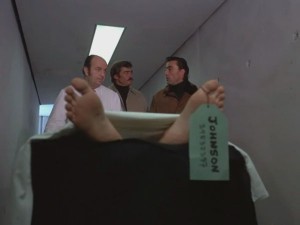
In theory, the Marché du Film is merely one division of the festival out of many (official selections, Directors’ Fortnight, Critics’ Week, etc.); in practice, every film and every person attending is on the marketplace, to purchase or to be purchased, and all the rest is journalistic euphemism. It was there, at any rate, that I came across Samuel Fuller’s latest film.
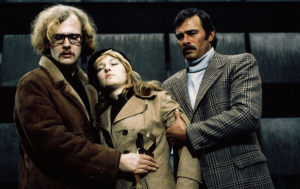
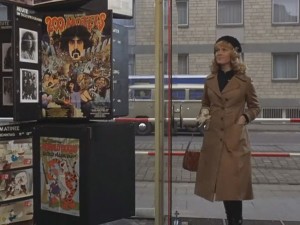
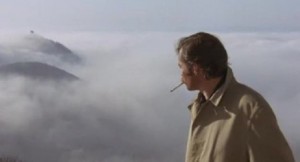
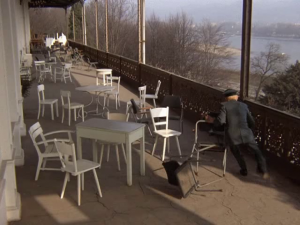
Not all of DEAD PIGEON ON BEETHOVEN STREET is peaches and cream, but the beginning is extraordinary — a brilliant burst of action that illustrates the title in lightning flashes — and the mad finale in a weapons room is not far behind. Fuller’s habitual obeisance to the title composer reaches an apogee of sorts in a scene set in the Beethoven Museum, where the head of one of the leads (Glenn Corbett) is cut off by the top of the frame in order to give one of the Master’s pianos a privileged place in the composition. Read more
Written for the Pesaro International Film Festival (July 2016). Most of this piece is made up of earlier articles on the same general subject, so the reader should bear in mind that some of my positions and opinions (such as my estimation of Godard’s Histoire(s) du cinéma) have changed over the years. — J.R.
Criticism on Film
From Sight and Sound (Winter 1990/91):
It’s no secret that serious film criticism in print has become an increasingly scarce commodity, while ‘entertainment news’, bite-size reviewing and other forms of promotion in the media have been steadily expanding. (I’m not including academic film criticism, a burgeoning if relatively sealed-off field which has developed a rhetoric and tradition of its own — the principal focus of David Bordwell’s fascinating book Making Meaning). But the existence of serious film commentary on film, while seldom discussed as an autonomous entity, has been steadily growing, and in some cases supplanting the sort of work which used to appear only in print.

I am not thinking of the countless talking-head ‘documentaries’ about current features — actually extended promos financed by the studios or production companies — which include even such a relatively distinguished example as Chris Marker’s AK (1985), about the making of Kurosawa’s Ran. Read more
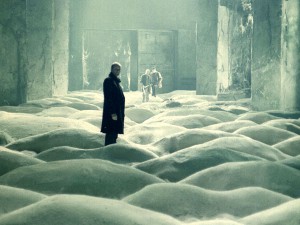
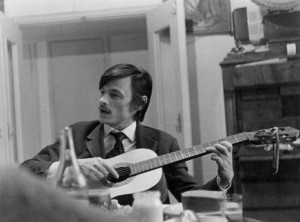
1. Are Tarkovsky’s movies still new (by “NEW” I mean do you find new things in recent viewing of the films or surprised by them)? Can viewers/filmmakers still learn from them?
I find that all of Tarkovsky’s films remain new and full of surprises for me. They don’t “date” at all.
2. Should we look at Tarkovsky movies as spiritual movies, religious movies or modern films?
I would say that they’re both spiritual and modern. If they’re also religious, I can’t easily identify them as such.
3. Who/what influenced Tarkovsky’s cinema and which contemporary filmmakers are influenced deeply by his cinema?
Tarkovsky’s cinema, by his own account, was influenced by his father’s poetry, and most likely by other Russian poetry as well. I haven’t reread his book Sculpting in Time recently, but I recall that he had a great deal of reverence for Dovzhenko and Bergman, among others; I don’t know whether or how much they may have influenced him directly.
As for the influence of Tarkovsky on other filmmakers, I could cite Béla Tarr and, more recently, Alex Garland in his film Ex Machina, which is clearly indebted to Solaris. There are undoubtedly many others, but these are the first names that spring to mind. Read more







